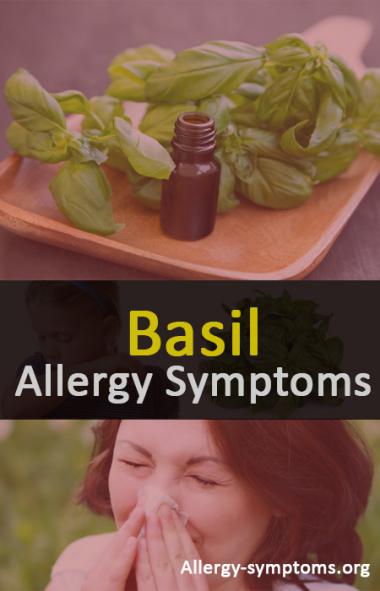Excess eating isn’t good for health. Natural ingredients, which are renowned for its healing benefits can stimulate allergic when taken in excess amount.
Basil allergy isn’t common, but there are few cases where this adverse reaction has been reported.
Hindus worship Holy Basil and are prominently used in Ayurvedic medicine. Active properties like anti-inflammatory, anti-microbial and immune boosting help to treat various ailments like asthma, fever, diabetes and reduce stress.
Our bodies function differently, food ingredients that heal my ailment can trigger allergy, is you. It all varies from person to person.
When a hypersensitive person comes in contact with basil leaves or seeds, immune system reacts harshly by producing antibodies to combat them. IgE antibodies detect the irritating food substances and signals to release histamine.
Thus, a chemical reaction is triggered and the person will experience different allergic symptoms. It can be mild, moderate and server in rare cases.
Symptoms of Basil Allergy

Because your immune system treats these food substances as a threat, it tries to thwart them out of the body.
Skin rashes, sneezing, coughing are common symptoms a hypersensitive person will experience.
There are few cases where the sensitive person experienced allergic signs just by inhaling or touching the allergen.
A 65 year old woman with basil allergy experienced dyspnoea (difficulty in breathing), hives, oral pruritus (itching in mouth and tongue), swelling of face and lips.
These adverse signs appeared within 30 minutes of ingesting raw basil with homemade sauce.
Further the report states that previously sneezing, nasal congestion, coughing and wheezing are also experienced by same woman after inhaling lavender.
Another case of a 25 year old person reported with identical signs after ingesting sauce with basil leaves. Swelling of lower lip, swelling of eyes, vomiting (emesis), rhinorrhoea (nasal discharge) and oral pruritus were experienced.
First person experienced allergic reaction to lavender and oregano due to cross reactivity. Food substances that include identical protein structure and potential cross reactivity can trigger allergic reaction.
Diagnosis
Apart from allergic reaction, active ingredient eugenol in basil may stimulate different side-effects.
All side-effects don’t come under allergic reaction. So, the person must get diagnosed by practicing physician or allergist to determine the allergen.
Allergist will expose your skin to different substances through skin prick test. If the result states positive towards IgE antibodies, then the food allergen can be confirmed.
Along with prescribed medication, the person must avoid basil in any form. Raw, cooked or when mixed with other ingredients.
Due to its exceptional nutritional profile, many manufacturing industries are incorporating this innate ingredient to their products. So, you must check ingredient’s list to make sure basil isn’t included.
As mentioned, cross reactivity also triggered allergic reaction. Pollen travel by wind and leads to allergy, however, cooking the food will wipe the pollen.

